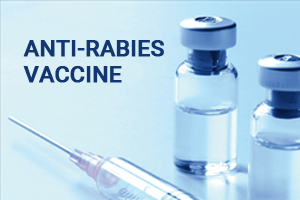- Home
- Medical news & Guidelines
- Anesthesiology
- Cardiology and CTVS
- Critical Care
- Dentistry
- Dermatology
- Diabetes and Endocrinology
- ENT
- Gastroenterology
- Medicine
- Nephrology
- Neurology
- Obstretics-Gynaecology
- Oncology
- Ophthalmology
- Orthopaedics
- Pediatrics-Neonatology
- Psychiatry
- Pulmonology
- Radiology
- Surgery
- Urology
- Laboratory Medicine
- Diet
- Nursing
- Paramedical
- Physiotherapy
- Health news
- Fact Check
- Bone Health Fact Check
- Brain Health Fact Check
- Cancer Related Fact Check
- Child Care Fact Check
- Dental and oral health fact check
- Diabetes and metabolic health fact check
- Diet and Nutrition Fact Check
- Eye and ENT Care Fact Check
- Fitness fact check
- Gut health fact check
- Heart health fact check
- Kidney health fact check
- Medical education fact check
- Men's health fact check
- Respiratory fact check
- Skin and hair care fact check
- Vaccine and Immunization fact check
- Women's health fact check
- AYUSH
- State News
- Andaman and Nicobar Islands
- Andhra Pradesh
- Arunachal Pradesh
- Assam
- Bihar
- Chandigarh
- Chattisgarh
- Dadra and Nagar Haveli
- Daman and Diu
- Delhi
- Goa
- Gujarat
- Haryana
- Himachal Pradesh
- Jammu & Kashmir
- Jharkhand
- Karnataka
- Kerala
- Ladakh
- Lakshadweep
- Madhya Pradesh
- Maharashtra
- Manipur
- Meghalaya
- Mizoram
- Nagaland
- Odisha
- Puducherry
- Punjab
- Rajasthan
- Sikkim
- Tamil Nadu
- Telangana
- Tripura
- Uttar Pradesh
- Uttrakhand
- West Bengal
- Medical Education
- Industry
Anti-Rabies Vaccines to be supplied to Govt Hospitals: Karnataka Health Minister Patil

The minister said in a press meet that he has already discussed the problem faced due to the shortage in supply and the Union Government has agreed to supply Anti-Rabies Vaccine (ARV) as early as possible as per demand.
Kalaburagi: Karnataka Minister for Health Sivanand Patil on Tuesday said that the Union Government will soon supply the Anti-Rabies Vaccines (ARV) in the government hospitals of the state.
The state hospitals were reportedly facing an acute shortage in ARV due to a shortage in drug supply.
The minister said in a press meet that he has already discussed the problem faced due to the shortage in supply and the Union Government has agreed to supply Anti-Rabies Vaccine (ARV) as early as possible as per demand.
Read Also;Gulbarga Institute of Medical Sciences facing acute shortage of anti-rabies vaccine
Patil instructed the District Health Officer and District Surgeon in the hospitals that they treat the patients carefully and take care of hygiene.
Rabies is a zoonotic infection (a disease that spreads from animals to humans) that can cause a rare but life-threatening infection of the brain and nervous system in humans.
It usually results from a bite, scratch or lick from an infected animal.
The virus is estimated to kill around 59,000 people every year worldwide, most often as a result of a bite from a rabid dog in parts of Africa and Asia.
Providing treatment to the infected person within 10 days of infection is considered an effective way of preventing the ailment from becoming worse.
Kalaburagi: Karnataka Minister for Health Sivanand Patil on Tuesday said that the Union Government will soon supply the Anti-Rabies Vaccines (ARV) in the government hospitals of the state.
The state hospitals were reportedly facing an acute shortage in ARV due to a shortage in drug supply.
The minister said in a press meet that he has already discussed the problem faced due to the shortage in supply and the Union Government has agreed to supply Anti-Rabies Vaccine (ARV) as early as possible as per demand.
Read Also;Gulbarga Institute of Medical Sciences facing acute shortage of anti-rabies vaccine
Patil instructed the District Health Officer and District Surgeon in the hospitals that they treat the patients carefully and take care of hygiene.
Rabies is a zoonotic infection (a disease that spreads from animals to humans) that can cause a rare but life-threatening infection of the brain and nervous system in humans.
It usually results from a bite, scratch or lick from an infected animal.
The virus is estimated to kill around 59,000 people every year worldwide, most often as a result of a bite from a rabid dog in parts of Africa and Asia.
Providing treatment to the infected person within 10 days of infection is considered an effective way of preventing the ailment from becoming worse.
Medical Dialogues Bureau consists of a team of passionate medical/scientific writers, led by doctors and healthcare researchers. Our team efforts to bring you updated and timely news about the important happenings of the medical and healthcare sector. Our editorial team can be reached at editorial@medicaldialogues.in.
Next Story


